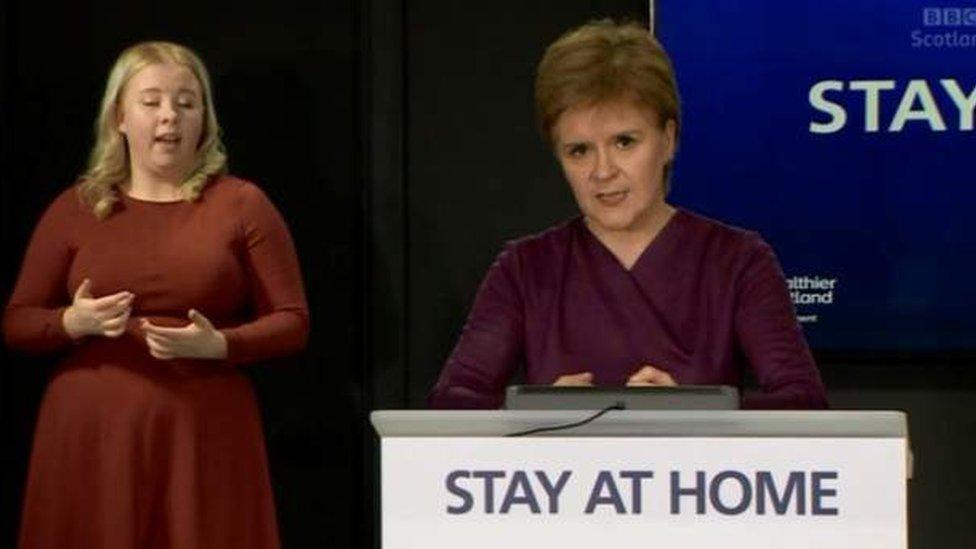Coronavirus in Scotland: Call for regional lockdowns as new cases drop
- Published
- comments

A consultant physician from Dumfries and Galloway has laid out the case for regional variations in easing lockdown across Scotland.
Prof Chris Isles, who has written a paper on the subject, said there was data to support the argument.
He said restrictions could be lifted more quickly in areas such as his own where infection rates were low.
The Scottish government has not ruled out a "regionally varied approach" but is not proposing one at present.
Speaking on BBC Radio Scotland's Good Morning Scotland programme, Prof Isles said his area had locked down and waited for a "tsunami of Covid positive admissions" which had not happened.

There have been "huge variations" in infection rates across the country
"Cases peaked in Dumfries and Galloway between 9-13 April and have been falling ever since," he said.
"We have had no new Covid positive cases throughout the region for the last eight days, no Covid positive cases in the hospital for the last five days and no Covid positive deaths for the last fortnight."
He said if the purpose of lockdown had been to prevent the NHS from being overwhelmed, it had been a "resounding success" in the region.
Prof Isles said there were "huge variations" in the situation across the country.
'Gap widened'
"At the peak of the pandemic, Greater Glasgow and Clyde had three times the number of patients hospitalised with Covid per 100,000 than we did," he said.
"That gap has since widened so that the hospitalisation rate in Greater Glasgow and Clyde is now 30 times that of Dumfries and Galloway.
"Borders, Highland, Forth Valley, Tayside, the islands also have low rates of hospitalisation.
"If Greater Glasgow and Clyde had 30 times fewer people in hospital with Covid per head of population then families would be meeting indoors by now, grandparents would be seeing their grandchildren, businesses would be reopening and children would be back at school."
The Scottish government has said it would consider regional variations if the evidence backed them up and they could be implemented in a "practical and clearly understandable way".
It said the incidence of the virus was subject to ongoing monitoring across the country.
It added that if there was a case for a regional approach then that would be considered.


SCHOOLS: When will children be returning?
EXERCISE: What are the guidelines on getting out?
THE R NUMBER: What it means and why it matters
AIR TRAVELLERS: The new quarantine rules
LOOK-UP TOOL: How many cases in your area?

- Published14 May 2020
